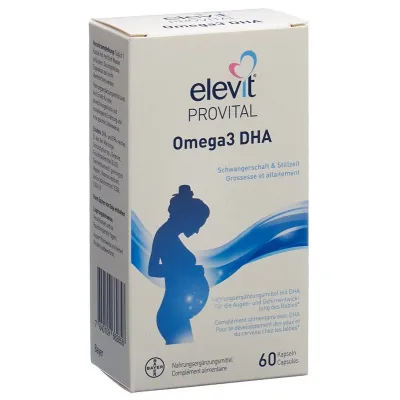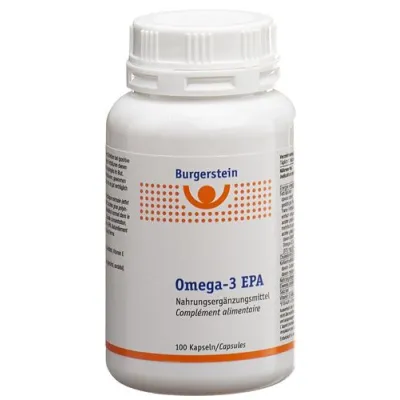Boost Your Omega-3s: Easy Ways to Meet Your Needs

What are omega-three fatty acids?
Omega-3 fatty acids are a group of essential polyunsaturated fats that are crucial for human health. There are three main sorts: alpha-linolenic acid (ALA), which is found in vegetable oils; eicosapentaenoic acid (EPA); and docosahexaenoic acid (DHA), both located frequently in marine oils. Unlike some fats that the body could make on its own, omega-3s are essential fat, which means they must be obtained from the diet.
The importance of Omega-3 in the diet
Omega-three fatty acids play a critical role in the cellular functions of the body. They are integral components of cellular membranes and are essential for the normal functioning of the heart, brain and different organs.
Heart health: Omega-3s are known for their cardiovascular benefits. They help lower triglycerides, slightly lower blood pressure, reduce blood clotting, reduce the risk of stroke and heart failure, and reduce irregular heartbeats.
Brain health and development: Omega-3 is the best brain support supplement. DHA is a major structural component of the brain and retina. In infants, DHA is vital for brain and eye development. Pregnant women should pay special attention to Omega-3 consumption, for example ELEVIT PROVITAL Omega-3 is ideal for nutritional support of nursing mothers. Contains lutein and omega-3, which are important for the development of vision, brain and immunity of the baby.
Elevit provital omega3 dha caps
Dietary supplements with DHA. For baby's eye and brain development. Composition Oil rich in DHA and EPA from the microalga Schizochytium sp ., Gelatin, Humectant (E422), Sunflower Oil, Purified Water, Rosemary Extract, Antioxidant (E306, E304(i)).. Properties Pregnancy & Lactation . Application Swallow 1 capsule daily with plenty of water. Nutritional values Nutritional valueQuantity per%Measurement accuracy Docosahexaenoic acid (DHA)200 mgPer capsule/capsule Notes May contain traces of soy. ..
67.98 USD
Anti-inflammatory properties: Omega-3 can reduce the production of substances released during the body's inflammatory response, which can be useful in reducing the symptoms of inflammatory diseases.
Mental health: Research shows that omega-3s may additionally play a crucial position in reducing signs and symptoms of depression, bipolar sickness, and schizophrenia.
Joint health: They can assist lessen symptoms of rheumatoid arthritis, inclusive of joint ache and stiffness.
Given their huge variety of health benefits, omega-3 fatty acids are a vital component of a balanced diet. The main sources of EPA and DHA are fish and seafood, especially cold-water fatty fish including salmon, mackerel, tuna, herring and sardines. ALA is located in plant sources consisting of flax seeds, chia seeds and walnuts. It's crucial to include these foods to your diet or consider taking an omega-3 supplement, such as Burgerstein Omega 3-EPA. Burgerstein vitamins are highly effective swiss health products that offer reliability and effectiveness of supplements. Due to its high EPA content material, it is specifically suitable for regulating blood lipid levels and cholesterol metabolism. In addition, EPA helps cardiovascular health and is vital for cellular membrane structure and function if dietary sources are insufficient or if certain health situations require higher intakes.
Burgerstein omega 3-epa capsules 100 pcs
Burgerstein Omega-3 EPA is a highly concentrated and pure fish oil preparation that serves as a food supplement. Thanks to the high EPA content, this is especially suitable for regulating blood lipid levels and cholesterol metabolism. In addition, EPA supports cardiovascular health and is necessary for the structure and function of the cell membrane. Pure fish oil with high levels of EPANo fish flavourContributes to normal heart functionContributes to the maintenance of normal blood pressureFriend of the sea" certifiedNo artificial flavoursFructose-free, lactose-free, yeast-free and gluten-freeWithout granulated sugar Application It is recommended to take 1 Burgerstein Omega-3 EPA capsule daily with some liquid. Ingredients Fatty acids from fish oil, edible gelatine (fish), humectant (glycerine), vitamin E (from D-alpha-tocopherol and mixed tocopherols)...
111.92 USD
However, it's vital to consult a healthcare expert before starting any new supplement routine, especially if you have a clinical situation or are taking medications that may have interaction with omega-3 supplements.
Natural sources of omega-3 fatty acids
Omega-three fatty acids are crucial fat and can't be produced by the frame. They should be acquired from the diet.
Fatty fish
Fatty fish is one of the best sources of omega-3 fatty acids, particularly EPA and DHA. They consist of:
Salmon: Known for its high DHA and EPA content material, salmon is likewise an terrific supply of protein and vitamin D.
Mackerel: In addition to being rich in omega-3, mackerel is low in mercury and high in selenium and vitamin B12.
Sardines: Small and nutrient-dense, sardines offer omega-3s, vitamin B12 and calcium.
Anchovies: These small fish are high in EPA and DHA and are a good source of protein.
Herring: A serving of herring provides significant amounts of omega-3s, as well as vitamin D and selenium. Including this fish in your diet, you can grill, bake or steam it.
Plant-based options: seeds and nuts
For vegetarians or those who prefer plant-based sources, there are numerous options:
Flaxseeds: High in ALA, a plant-primarily based omega-three fatty acid, flaxseeds may be introduced to yogurt, smoothies or salads.
Chia seeds: These seeds are not only wealthy in ALA, however also in fiber and protein. They can be soaked in water or milk to make chia pudding, a nutritious and filling snack.
Walnuts: Tasty and convenient source of ALA. They may be eaten as a snack or delivered to salads and baked items.
Hemp seeds: These seeds incorporate sufficient ALA and may be sprinkled on salads, cereal or jumbled together with a strip.
Include omega-3 in your diet
Start with breakfast: Add ground flax or chia seeds to oatmeal, yogurt, or smoothies.
Fish dinners: Try to include oily fish in dinner two times every week. Grilled salmon or mackerel salads are scrumptious and easy to prepare.
Baking Uses: Ground flaxseed may be used as an egg replacement in baking, imparting a good source of omega-3s.
Remember, while omega-3s are beneficial, balance is key in any diet. It is important to maintain a varied diet that includes a number of different vitamins.
Omega-3 supplements: pros and cons
Sometimes Omega-3 fatty acids are difficult to obtain in sufficient portions only from the diet. This is in which omega-3 supplements come to the rescue.
Advantages of Omega-3 supplements
A handy source of omega-3s: For people who do not eat enough fatty fish or have dietary restrictions, omega-three supplements provide a handy way to get these crucial fats.
High concentration of Omega-3: Dietary supplements regularly incorporate better concentrations of EPA and DHA than most food sources, making it simpler to reach the advocated every day allowance.
Purity and Quality: High-quality supplements go through a system to remove contaminants such as mercury, which can cause concern in a few fish species.
Supports a variety of health conditions: They are good for lowering triglycerides, supporting heart health, and might help with certain mental illnesses and inflammatory conditions. Looking for a reliable heart health supplement? DDraw your attention to Livsane Omega-3 + Vitamin E, which promotes the health of the cardiovascular system and is also an ideal supplements for memory and brain. Like omega-3, the vitamin E discovered in this supplement is a vital nutrient for cardiovascular health. This vitamin acts as an antioxidant, assisting to guard your cells from damage caused by free radicals. Vitamin E also can assist enhance blood flow and decrease the hazard of blood clots, making it an essential vitamin for all and sundry worried about heart health.
Cons of Omega-3 supplements
Possible interactions: Omega-3 supplements may additionally have interaction with certain medicinal drugs, which includes blood thinners, and may not be right for everybody.
Side results: Some humans may experience side effects including a fishy flavor, gastrointestinal soreness, or hypersensitive reactions.
When to include Omega-3 supplements in your diet
Inadequate dietary intake: If your diet is missing in ingredients wealthy in omega-3s, especially EPA and DHA, supplements can help fill the gap.
Specific health conditions: People with certain medical conditions, consisting of heart disorder, high triglycerides, or inflammatory illnesses, may benefit from the higher doses available in supplements.
Vegetarian or vegan diet: Because plant-primarily based ALA may not be effectively transformed to EPA and DHA, vegetarians and vegans may additionally need to take into account taking algae-based omega-3 supplements.
Pregnancy and breastfeeding: Omega-3s are critical for fetal and toddler brain improvement. Pregnant and breastfeeding women who do not devour sufficient omega-3-wealthy meals may consider taking supplements after consulting a healthcare professional.
It is vital to word that omega-3 dietary supplements are not an alternative to a wholesome diet. They need to be viewed as a supplement, not a replacement, for nutrient-dense foods.
Therefore, increasing your omega-three consumption is an enormous step towards better health. Whether it is adding greater fatty fish and plant-based sources assets like flaxseeds and walnuts for your diet, or opting for omega-3 supplements whilst your dietary intake is not sufficient. The key is balance and variety to your diet, and understand that each person's dietary needs and limitations are unique.
Disclaimer: This article contains and is not intended as medical advice. Although omega-3 fatty acids are beneficial for most people, it is important to consider personal health and dietary restrictions. The information in this article is not a substitute for professional medical advice, diagnosis or treatment. Always consult a healthcare professional or registered dietitian before making significant changes to your diet or starting any new supplement regimen, especially if you have a medical condition or are taking medication.
L. Baumann












